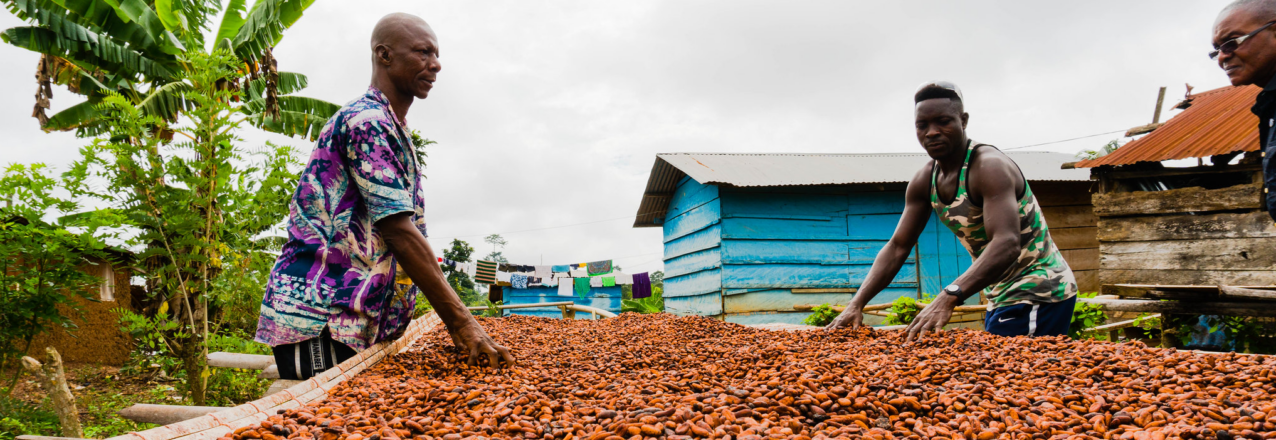Under the Communications, Evidence and Learning (CEL) Project, NORC at the University of Chicago is leading a mixed-methods quasi-experimental impact evaluation of the USAID-funded “Supporting Deforestation-Free Cocoa in Ghana” project activity[1]. The activity employs land tenure strengthening, land use planning and cocoa farm rehabilitation interventions to addresses complex drivers of deforestation and deteriorating livelihoods in cocoa landscapes in Western Ghana.
Approximately 80% of land in Ghana is governed under customary tenure arrangements, which can take a number of different forms. The long-term viability of cocoa farming is at risk in many parts of Ghana, with many small-scale farmers facing declining productivity. However, cocoa farming in Ghana takes place within a complex broader socio-economic system and efforts to improve production and farmer’s livelihoods must address several interwoven issues. Farmer’s average cocoa yields are well below potential and a substantial proportion of cocoa farms suffer from high disease load. But, farmers and communities lack the funding, labor, technical knowledge, and related resources to replace diseased cocoa trees using best practices. Consequently, they struggle to rehabilitate older cocoa farms to obtain increased yields and resiliency. In addition, many cocoa farmers have insecure land tenure arrangements under Ghana’s customary land governance system, which prevents or discourages them from replanting older or more diseased cocoa farms. Without formalized documentation of their customary farm tenure rights, tenant farmers may be especially constrained in their options to rehabilitate cocoa farms, adopt sustainable intensification practices, and improve their livelihoods.
USAID’s ILRG implements the “Supporting Deforestation-Free Cocoa in Ghana” activity through a partnership with three private sector partners: Ecom Agroindustrial Corp. (ECOM), the Hershey Company (Hershey), and Meridia. The activity has three intervention components: (1) cocoa farm rehabilitation provided to a small group of registered farmers; (2) farm mapping and provisioning of tenure documentation to any interested farmer in the villages; and (3) landscape governance and land use planning activities implemented at village and district levels. The activity is implemented in Wassa Amenfi West District, in Ghana’s Western region, a historically important carbon sink that has experienced high rates of in-migration and deforestation associated with rapid cocoa expansion.
CEL’s evaluation of the activity aims to provide an evidence base for outcomes related to strengthening land rights and land governance, reducing deforestation, increasing carbon sequestration and cocoa productivity, and enhancing local livelihoods. The evaluation draws on qualitative and quantitative data collected at baseline (2019) and endline (anticipated for 2021) from 714 households in the four villages and seven comparison group villages in Asankrangwa. CEL’s evaluation results will provide targeted learning on key knowledge gaps and serve as an evidence base to inform USAID’s planning for a potential scale-up of the activity.
[1]The activity is implemented under USAID’s Integrated Land and Resource Governance (ILRG) Task Order under the Strengthening Tenure and Resource Rights II (STARR II) IDIQ. ILRG’s international consortium includes Tetra Tech as prime contractor and Winrock International and Meridia as core subcontractors. This activity is designed as a bridge between a pilot activity done under TGCC and potential future scaling, depending on results from the activity.


